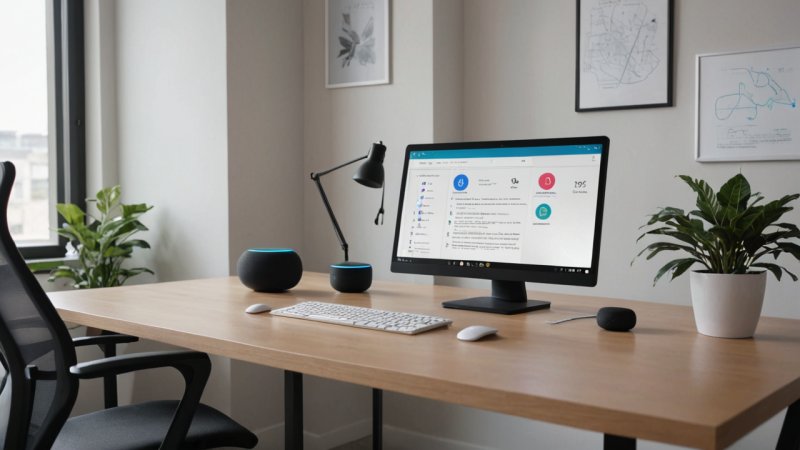In today's fast-paced world, creating an efficient and comfortable workspace is essential for productivity. With the rise of smart technology, office devices have evolved significantly, offering innovative solutions that enhance our work environment. In this article, we'll compare two popular categories of smart office devices: smart speakers and smart displays. Both devices promise to improve your workflow, but they do so in different ways. Let's dive into the pros, cons, and differences to help you decide which is the best fit for your smart office.
What Are Smart Speakers?
Smart speakers are voice-activated devices that connect to the internet and can perform various tasks using voice commands. Examples include the Amazon Echo and Google Nest Audio. These devices primarily focus on audio output and can control other smart home devices, play music, and answer questions.
What Are Smart Displays?
Smart displays combine the functionality of a smart speaker with a touchscreen interface. Devices like the Google Nest Hub and Amazon Echo Show allow users to interact visually with apps, video calls, and more, making them versatile tools for any office space.
Comparison of Smart Speakers and Smart Displays
Functionality
Smart speakers are primarily designed for audio tasks. They can play music, provide weather updates, and integrate with smart home devices. Smart displays, on the other hand, offer all these features with the added benefit of a visual interface. This allows for video calls, recipe displays, and on-screen controls for your smart devices.
Space and Design
Smart speakers are generally more compact and can fit into any nook of your office without taking up much space. They blend seamlessly into your environment. Smart displays, while slightly larger, also come in various sizes and designs, providing more versatility in placement. However, they may require a bit more desk space.
Ease of Use
Both devices are user-friendly, but the method of interaction differs. Smart speakers rely entirely on voice commands, making them hands-free and convenient while you work. Smart displays offer touch interaction, allowing users to engage with content visually and control settings more intuitively.
Cost
Generally, smart speakers are more budget-friendly than smart displays. If you're looking for basic functionality and have a limited budget, a smart speaker might be the way to go. However, if you want the added features of a display, smart displays can provide greater value for the extra investment.
Integration with Other Devices
Both smart speakers and smart displays can connect with a wide range of smart home devices. However, smart displays often provide a more comprehensive control center, allowing you to see and manage your devices visually. This can be particularly useful in a home office where multiple devices are in play.
Audio and Video Features
When it comes to audio quality, smart speakers usually outperform their display counterparts, especially in larger models designed for music. Smart displays, however, excel in video capabilities, allowing for video conferencing and streaming content, which can be beneficial for remote meetings or presentations.
Privacy Concerns
Both devices have built-in microphones and cameras (in the case of smart displays), raising privacy concerns for some users. Smart speakers typically have mute buttons to disable the microphone, while smart displays often have camera covers or physical options to ensure your privacy when not in use.
Conclusion
Choosing between a smart speaker and a smart display ultimately depends on your specific needs and the nature of your work. If you prioritize audio functions and are looking for a compact, budget-friendly option, a smart speaker will likely serve you well. However, if you want a multifunctional device that offers both audio and visual capabilities, a smart display could significantly enhance your workspace. In the end, both devices can add a level of convenience and sophistication to your smart office, so consider your priorities carefully before making your decision.






